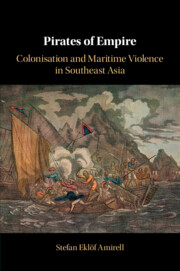Professionally, my interest in piracy began in the 1990s when I was doing research for my PhD thesis in Southeast Asia. Piracy and armed robbery against ships was relatively common in the region at the time, and just about every week the regional newspapers reported about commercial vessels being attacked by pirates in the Strait of Malacca, the South China Sea or Indonesian ports. To be honest, many of the incidents were trifling affairs that hardly seemed to justify the dramatic label ‘piracy’. However, some of the attacks were serious crimes, including well-organised operations in which large ships, such as oil tankers and bulk vessels, were hijacked at sea and their crews, in some cases, ruthlessly shot or hacked to death and thrown overboard.
Piracy, I came to realise, was not a thing of the past, and the reality was a far cry from the romantic image of Treasure Island or Pirates of the Caribbean. As a historian, moreover, I began to wonder whether piracy, which seemed to have been so prevalent in Southeast Asia in precolonial and early colonial times, had really been stamped out in the nineteenth century and only recently returned, or if it had in fact never disappeared but only temporarily moved out of sight.
My attempts to make sense of contemporary piracy in Southeast Asia resulted in a postdoctoral research project at the Centre for East and South-East Asian Studies at Lund University in Sweden and eventually, in 2006, a book about the modern history of piracy in Southeast Asia, perhaps somewhat romantically entitled Pirates in Paradise. The focus was on the period from 1975 to 2005, which meant that I went further back in time than most studies of contemporary piracy published around the same time. Nonetheless, the question of what happened in the period from the middle of the nineteenth century until the last quarter of the twentieth century remained largely unexplored, not only by me but also by most other members of the small community of pirate historians.
The present study is an attempt to fill that gap. Although the period under study is long, going back to the onset of the European maritime expansion in Asia, the focus is on the period from around the middle of the nineteenth century, when most existing studies of the history of piracy and other forms of maritime raiding in Southeast Asia end their period of investigation, until the beginning of the twentieth century, when piracy, for the most part, had been efficiently suppressed in the region.
Above all, the book sets out to relate the phenomenon of maritime violence to the intensified colonisation of Southeast Asia in the second half of the nineteenth century and the first years of the twentieth century. In doing so, it compares the policies and interests of the five major colonial powers in the region at the time, Britain, France, the Netherlands, Spain and the United States. The book also aims, as far as possible, to highlight the perspectives of those who were accused of piracy or in other ways were affected by the efforts of the colonial powers to establish maritime security and commercial and political hegemony in maritime Southeast Asia. The book thereby draws attention to the central role that ‘piracy’, however defined, played, not only in the extension and legitimisation of empire, but also in the anti-imperialist critique of colonial expansion in the nineteenth and early twentieth centuries.
The title Pirates of Empire has been chosen in order to capture some of the ambiguity and the multiple meanings attached to the label piracy in Southeast Asia’s age of empire. Piracy was a multifaceted and often useful concept, both for those who advocated imperial expansion and for those who resisted it, whether in Southeast Asia, Europe or the United States. The concept also changed its meaning and use over the long history of the overseas European expansion. Hopefully this book will contribute to a better understanding of how the imperial past and its pirates – whether Asian, European or American – all took part in shaping the global maritime security regime that still is a cornerstone of global commerce and the international political order.
The spelling of personal and place names follows, as far as possible, the Internet edition of the Encyclopedia Britannica. All translations into English from the cited sources and literature are, unless otherwise stated, by the author.

